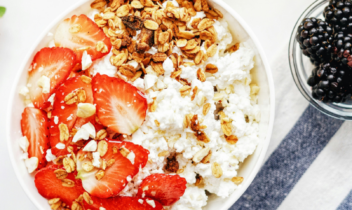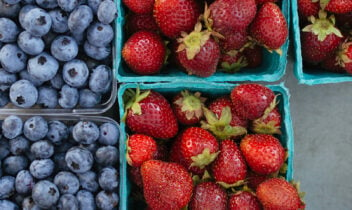TheBUZZ: Sleep deprivation can hinder weight loss/maintenance?
WHAT THEY’RE SAYING
Sleep deprivation leads to unhealthy eating choices and decreased exercise, which can lead to weight gain over time.
WHAT WE KNOW
You know the drill: eat right and exercise to lose weight. It can be a tiring endeavor to find the time to prepare healthy meals and carve out a few minutes to workout. Plus, you’ve still got work, family and a life to live, right?
When we get busy, we tend to shave time off our sleep schedule to fit everything in. This may not only be unhealthy, but could also be counterproductive to your weight-loss efforts. How? Sleep deprivation causes an increase in appetite (often for unhealthy choices) and a decrease in metabolism, which equals an increase in fat storage and weight gain.
If you don’t get enough sleep, you may feel more sluggish and not always think clearly, which may affect your food selection. This can lead to a vicious cycle of eating more and feeling more run down, which decreases the motivation to exercise. These two factors lead to weight gain!
Recent research has found a strong relationship between sleep and weight loss.
HOW DO WE KNOW THIS?
A review published in Best Practice & Research found that multiple studies observed an association between short sleep duration (generally <6 hours per night) and increased body-mass index … or obesity, diabetes, and hypertension.¹ Another review, published in the Annals of the New York Academy of Sciences, found multiple epidemiologic studies that have shown an association between short sleep and higher body-mass index, as well as a causative role of short sleep in the increased risk of diabetes.²
Recently, research from a study conducted at Columbia University found that compared with when they were well-rested, participants consumed an average of 296 calories more than when they were sleep-deprived. And women ate an average of 31g more fat per day when they were sleep-deprived.³
OUR ADVICE
Stop trying to be wonder woman and get your Zzzzzz’s! With all of the hats you wear every day, this may be easier said than done. But when it comes to sleep, it’s alright to be a little selfish. Determine what time you want to make it to bed every night, and stick to it! You’ll notice a huge difference in your energy and motivation, which can lead to healthier food choices (fruits and veggies) and exercise!
When you’re up late … snack on fruits and veggies! They’re low in fat, saturated fat, calories, and they keep you feeling fuller longer! They are your best option for a late night snack (or any time of the day)!
Not enough time to plan a healthy meal? Try our Simple, Healthy Meals for Hectic Times, and check out our weekly Healthy Menu Ideas—they take the guesswork out of planning a healthy diet, are quick to prepare, and include three (3) meals plus 2-3 snacks.
¹ Knutson. K. “Sleep Duration and Caridometabolic Risk: A Review of the Epidemological Evidence.” Best Practice & Research (2010); 24(5); 731-43.
² Knutson, K., V. Cauter. “Associations Between Sleep Loss and Increased Risk of Obesity and Diabetes.” Annals of the New York Academy of Sciences (2008); 1129; 287-304.
³ St-Onge. M. “Normal Weight Adults Eat More After Sleeping Less.” [paper presented at American Heart Association conference, Atlanta, Georgia. March 22-25, 2011].
|


